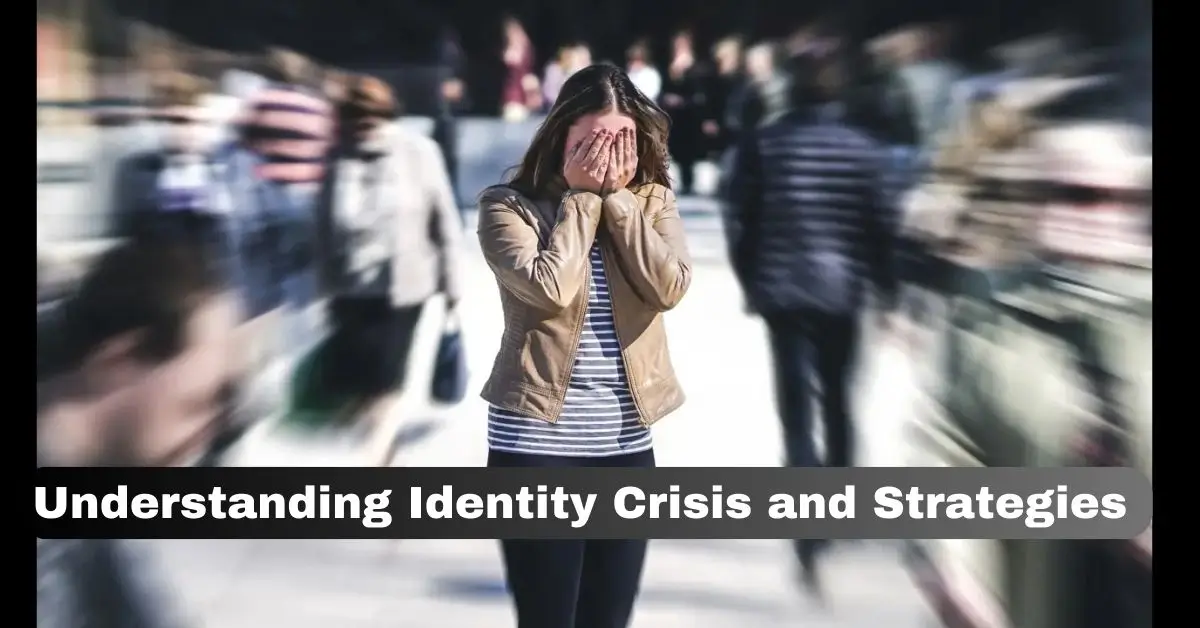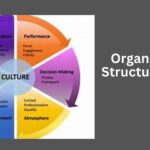In this Article;
• Understanding Identity Crisis
• Key aspects of identity crisis include
• Erikson’s Theory of Psychosocial Development
• Common Causes of Identity Crisis
• Signs and Symptoms of Identity Crisis
• Strategies for Overcoming Identity Crisis
In the journey of life, individuals often encounter periods of uncertainty and self-doubt, commonly known as an identity crisis. This psychological phenomenon can strike at various stages, from adolescence to adulthood and beyond.
It involves questioning one’s values, beliefs, roles, and purpose, often leading to feelings of confusion and anxiety. This article explores the concept of identity crisis, its potential causes, and provides practical strategies to navigate and overcome it.
Understanding Identity Crisis and Strategies
What is an Identity Crisis?
An identity crisis is a period of inner conflict and confusion about one’s self-identity and life direction. It often arises when individuals confront significant life changes, societal expectations, or personal growth challenges. It can manifest in various ways, such as:
Doubting one’s beliefs and values
Questioning career choices and goals
Exploring one’s sexual orientation or gender identity
Reevaluating relationships and social roles
Struggling with cultural or societal pressures
Key aspects of identity crisis include
- Self-Exploration: During an identity crisis, individuals engage in deep introspection to understand who they are and what they stand for. They may question their values, beliefs, and life goals.
Conflicting Identities: It’s common to experience conflicting identities or a sense of being torn between different roles or cultural influences. For example, an individual may grapple with the tension between their cultural heritage and the demands of a new environment.
Emotional Turmoil: Identity crises often entail emotional turmoil, including feelings of confusion, anxiety, and frustration. The process can be challenging as individuals confront uncertainty about their identity.
External Influences: Societal expectations, family dynamics, and cultural norms can all play a significant role in triggering or exacerbating identity crises. These external factors may impose conflicting ideals and values.
Resolving the Crisis: While identity crises can be unsettling, they also offer an opportunity for personal growth and self-discovery. With time and introspection, individuals can emerge from the crisis with a clearer sense of self and a more authentic identity.
Support and Guidance: Support from friends, family, or professionals like counselors can be invaluable during an identity crisis. A supportive network can provide encouragement and help individuals navigate the challenges of self-exploration. -
Erikson’s Theory of Psychosocial Development
- Psychologist Erik Erikson proposed the concept of identity crisis as a central component of his psychosocial theory. According to Erikson, individuals experience eight stages of psychosocial development, with the fifth stage, Identity vs. Role Confusion, occurring during adolescence. This stage involves a quest for a coherent self-identity and values.
-
Common Causes of Crisis
- 1. Life Transitions
Major life transitions, such as graduating from school, starting a new job, getting married, or becoming a parent, can trigger identity crises. These transitions force individuals to reevaluate their roles, goals, and values.
2. Cultural and Societal Expectations
Society often imposes expectations on individuals, dictating what is considered successful, appropriate, or acceptable. - These external pressures can lead to an identity crisis when they conflict with an individual’s true desires and values.
3. Traumatic Experiences
Experiencing trauma, such as the loss of a loved one, a divorce, or a significant health issue, can shatter one’s sense of self and lead to an identity crisis.
4. Midlife Crisis
While often portrayed humorously in popular culture, midlife crises are real and can result from a sense of unfulfillment and the need to reevaluate life choices in middle age. -
Signs and Symptoms of Identity Crisis
- 1. Confusion and Uncertainty
Individuals experiencing an identity crisis may feel uncertain about who they are and what they want from life. They might struggle to make decisions and feel overwhelmed by choices.
2. Anxiety and Stress
The process of questioning one’s identity can be emotionally taxing and lead to increased levels of anxiety and stress.
3. Loss of Motivation
People in the midst of an identity crisis may lose motivation in various aspects of life, including work, relationships, and personal pursuits.
4. Changes in Self-Esteem
Fluctuations in self-esteem are common during an identity crisis. Self-worth and confidence issues can be difficult for certain people.
5. Experimentation and Exploration
On the flip side, individuals in the midst of an identity crisis may engage in various forms of experimentation and exploration. - This can manifest in changes in appearance, lifestyle choices, or even career decisions as they search for a sense of identity and purpose.
-
Strategies for Overcoming Identity Crisis
- 1. Self-Reflection
Self-reflection is a fundamental step in addressing an identity crisis. Take time to contemplate your values, beliefs, interests, and passions. Journaling can be a helpful tool for self-exploration.
2. Seek Support
Reach out to trusted friends, family members, or a therapist to discuss your thoughts and feelings. Talking to others can provide perspective and emotional support during this challenging time.
3. Explore New Experiences
Trying new activities or hobbies might lead to the discovery of new interests and passions. Exploring unfamiliar territory can be invigorating and aid in personal growth.
4. Set Personal Goals
Set specific, achievable goals that align with your values and aspirations. Goal-setting can provide direction and motivation to move forward.
5. Accept Change and Uncertainty
Recognize that change and uncertainty are natural parts of life. Embrace the idea that growth often involves stepping out of your comfort zone.
6. Professional Guidance
Consider seeking guidance from a therapist or counselor who specializes in identity-related issues. Therapy can give helpful insights and coping methods.
An identity crisis is a challenging but potentially transformative experience that can lead to greater self-awareness and personal growth. - By understanding the causes and recognizing the signs, individuals can navigate these periods of uncertainty with resilience.
- Through self-reflection, seeking support, and embracing change, it is possible to emerge from an identity crisis with a clearer sense of self and a more authentic and fulfilling life path. Remember that an identity crisis is not a sign of weakness but an opportunity for growth and self-discovery.






